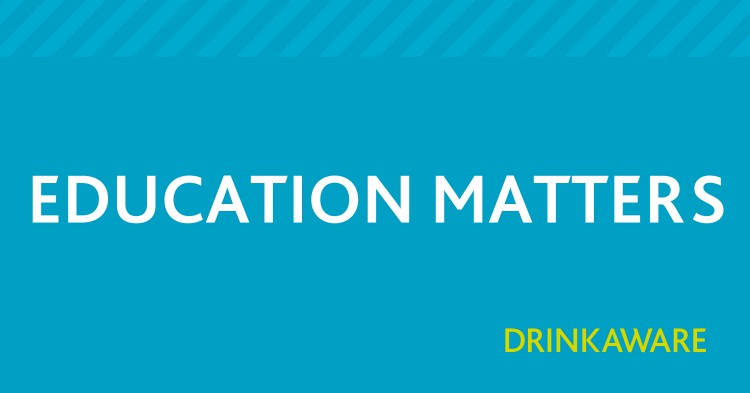3 minute read.
Maynooth University’s longitudinal study of Drinkaware’s Junior Cycle Alcohol Education Programme (JC AEP) indicates that alcohol education in school can prevent and intervene in underage drinking. The study tracks first to third year students’ experiences of alcohol education in Ireland. The Summary Report can be read here.
Teachers who participated in the evaluation were overwhelmingly positive about the programme, more than three-quarters said they would recommend this programme to other schools ‘without any hesitation.’ 94% in Year 3 thought that the programme was ‘excellent’, ‘very good’ or ‘good.” Likewise, the vast majority enjoyed delivering the programme (94% in year 3, 89% in Year 2, and 86% in year 1).
‘It is practical, experiential, targeted, evidence based, and age appropriate’ (Teacher, Year 2).
‘It has excellent resources that can easily be used by any teacher without having to do too much prep themselves and I was very surprised about how stimulated the students were with the programme’ (Teacher, Year 1).
‘It is very well researched, and it has very diversified approach in methodologies. It is fun, frank and interactive. Superb’ (Teacher, Year 3).
Preventing or delaying early use can play a significant role in the prevention of problems later. The Maynooth Report shows that 40% of first year students had tried alcohol before the programme began. 38% of these students by 3rd year, had experienced one or more negative effects of alcohol.
Why you as a teacher might get involved in the Drinkaware alcohol education programme in your school?
Health and Education are inextricably linked. In the 2016 research carried out by Behaviours and Attitudes with Junior Cycle Students, 89% indicated they had learned about alcohol use from a teacher. Drinking alcohol at a young age, before the brain or emotional control are developed, can have both short/ long-term health and personal consequences for the student.
The Tipping Point
The Report indicates that the Tipping Point for adolescent drinking is between 2nd and 3rd year, i.e., 14-15 years old. You as a teacher can make a difference. Your role as a teacher in effective alcohol education is critical as it enables students to have a voice, stay safe and alcohol free. The evaluation by Maynooth University of students receiving the programme who expressed no interest in or intention of drinking, rose from 30% in year 1 to 54% in year 3. The programme also led to sustained improvements in student knowledge and understanding of alcohol compared to pre programme delivery.
So, what is the Programme about?
The Programme aims:
- To promote understanding of the effects of alcohol.
- To support the development of personal and social skills to encourage independent decision making about alcohol.
- To empower young people to develop strategies to resist peer pressure, change behaviours and engage in alternatives to alcohol use.
- To delay the age of first drink.
This programme is aligned with the Junior Cycle Framework, the SPHE (Social Personal and Health Education) short course and Wellbeing programme. It consists of 8-10, timed 40 mins lessons in each year. The 7 key themes in each of the three years are- Alcohol, Friendship, Self-esteem, Communication skills, Influences, Health and Wellbeing and Healthy alternatives to alcohol use. There is a summary lesson at the end of each year plus two optional extra lessons. Each lesson ends with a reflective learning exercise and a Home Task. The Programme is only available to teachers who attend training.
Why is the AEP only available to teacher who attend training?
Alcohol education can be a sensitive subject for both teachers and students. Training enables teachers to deliver effective, experiential learning methodologies in the classroom and to reflect on their own biases, attitudes, and beliefs. The teacher is a facilitator of learning which involves the development of skills including decision making and self-reflection. Training enables teachers to become knowledgeable about the programme and comfortable with the various methodologies and strategies required to deliver the programme effectively and as intended.
The programme is supported with both a whole staff alcohol education workshop and parent workshop.
“A teacher can affect eternity. S/He can never tell where his/her influence stops.”
Henry Adams.
For more information or to book training contact martha@drinkaware.ie or 0879197253.
This is blog two in a series read the first blog on The importance of storytelling in research, by Dr Ann Stokes and keep an eye out for our next blog on the role of parents.
For more information on the Maynooth JC AEP evaluation report visit drinkaware.ie/education.


